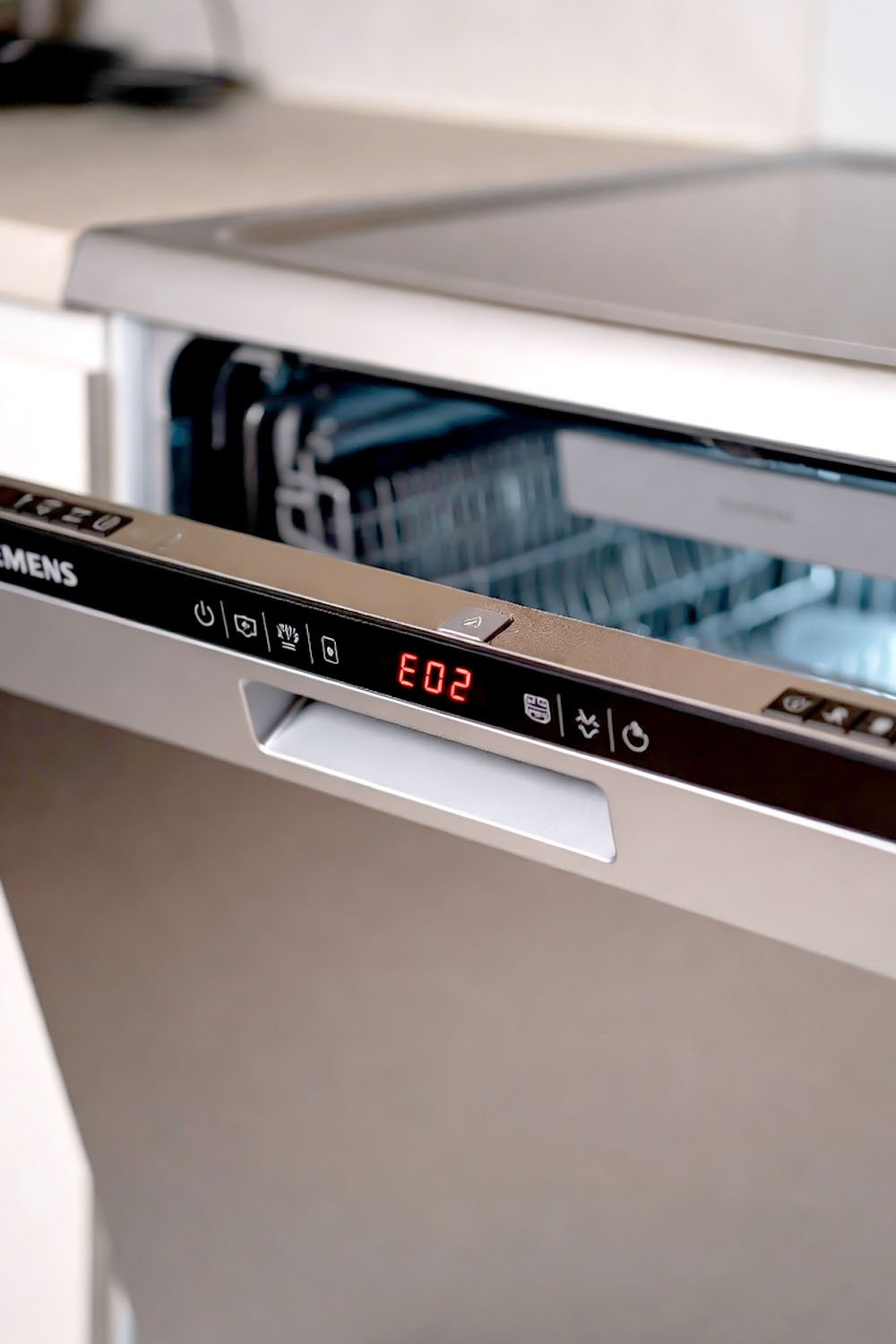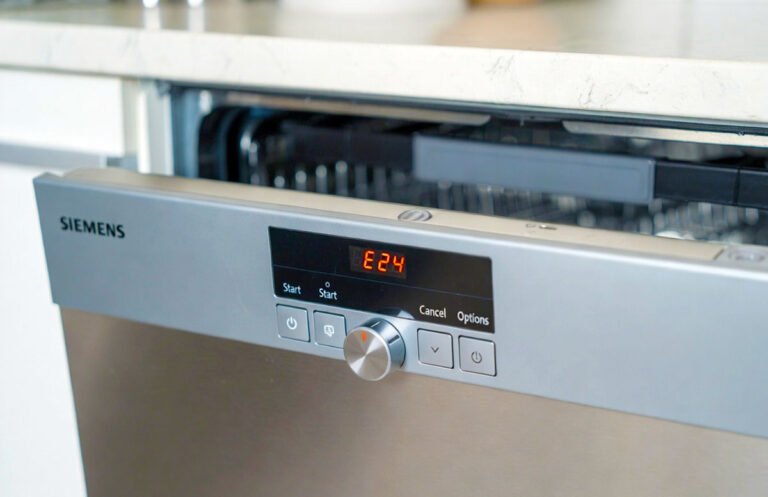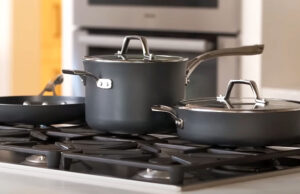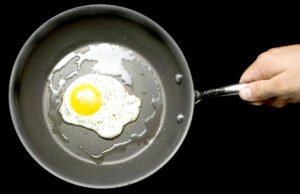As an Amazon Associate, I earn from qualifying purchases at no extra cost to you.
Neff Dishwasher Door Not Closing Properly: Quick and Easy Fixes
If your Neff dishwasher door is not closing properly, it can be frustrating. The good news is, most of the time, it is easy to fix. Usually, the problem is a misaligned latch, a broken hinge, or something blocking the door. You can check these issues quickly and fix them yourself. In most cases, a few adjustments will make your dishwasher work like new again. Don’t worry; you don’t need to be an expert. Let’s go through easy ways to solve this problem.
Check for Obstructions in the Door and Seal
First, open the dishwasher and look closely around the door edges. Often, food crumbs, small dishes, or packaging get stuck. These little things can prevent the door from closing completely. Make sure to remove any debris you find. Even a small piece of food can stop the latch from locking.
Next, check the rubber seal around the door. If it is bent, folded, or dirty, it can block proper closure. Clean the seal gently with a damp cloth. Avoid using harsh chemicals because they can damage the rubber. Once the seal is clean, try closing the door slowly to see if it closes better.
Sometimes, items inside the dishwasher can push against the door. Make sure tall items like cutting boards or pots are not sticking out. Rearrange your dishes if needed. You should feel the door close smoothly without resistance.
If the door still does not close, inspect the inside edge of the door for hidden crumbs. Use a soft brush or a toothpick to remove anything stuck. After this, the door should move easily.
- Remove food crumbs or debris around the door.
- Check the rubber seal for bends or dirt.
- Clean the seal with a damp cloth.
- Rearrange dishes to avoid blockage.
- Inspect door edges for hidden obstructions.
Adjust the Door Latch
The door latch is the small metal or plastic part that locks the door when closed. If the latch is loose or misaligned, the door will not stay shut. First, open the dishwasher and look at the latch closely. You may notice it is bent or slightly out of place.
Try tightening the screws that hold the latch. Sometimes, just a small turn of the screwdriver can fix the problem. If the latch is damaged or broken, it may need to be replaced. Replacement latches are easy to find online or at appliance stores.
After adjusting or replacing the latch, close the door slowly. Make sure you hear the click sound, which shows the latch is locking properly. If it doesn’t click, check again for obstructions or misalignment.
A well-aligned latch can make your dishwasher door close smoothly every time. Remember, don’t force the door, as this can break the latch or door frame. Gentle adjustments usually work best.
- Inspect the door latch for misalignment or damage.
- Tighten the screws holding the latch.
- Replace the latch if broken.
- Close the door slowly and listen for the click.
- Avoid forcing the door to prevent further damage.

Examine and Fix Door Hinges
Door hinges play a major role in the dishwasher closing properly. Over time, hinges can become loose or bent. Open the dishwasher and check both sides of the door. Look for signs of wear or damage. Sometimes, the hinges may squeak or feel stiff.
Tighten any loose screws you find. If a hinge is bent, carefully bend it back into place. Make sure both sides are even so the door sits level when closed. Uneven hinges are a common cause of door problems.
If hinges are broken, you need replacements. Most Neff dishwasher hinges can be purchased online. Installing new hinges usually takes only a few minutes. Once installed, the door should open and close smoothly without resistance.
Check the door after adjusting the hinges. Press gently to make sure it latches correctly. A properly aligned hinge ensures the door stays shut and the dishwasher works safely.
- Inspect both door hinges for looseness or bending.
- Tighten screws on each hinge.
- Carefully bend any misaligned hinge.
- Replace broken hinges if needed.
- Test the door to make sure it closes smoothly.
Check the Dishwasher Alignment
Sometimes the dishwasher itself is not level, which can prevent the door from closing. Use a small spirit level to check the dishwasher front to back and side to side. If it tilts, the door may swing open slightly or not close at all.
To fix this, adjust the legs at the bottom of the dishwasher. Most Neff models have adjustable feet. Turn them clockwise to raise or counterclockwise to lower until the dishwasher is level. This may take a few tries to get it just right.
Once the dishwasher is level, close the door and see if it latches properly. A small tilt can make a big difference, so don’t skip this step. Proper leveling ensures smooth operation and prevents leaks.
Check again after running a cycle. The door should stay closed, and the dishwasher should wash dishes without issues. Leveling also helps the machine last longer and reduces noise.
- Use a spirit level to check the dishwasher.
- Adjust the feet to make it level.
- Turn clockwise to raise, counterclockwise to lower.
- Close the door to test alignment.
- Run a cycle to ensure smooth operation.
Inspect the Door Spring or Counterbalance
The door spring or counterbalance helps the door open and close smoothly. If it is weak or broken, the door may not stay closed. First, look under the door or inside the bottom panel for a spring mechanism.
Check if the spring looks loose, stretched, or damaged. Sometimes the spring is just off its hook. If so, carefully reattach it. If it is damaged, replace it with the correct Neff part. Using the wrong spring can cause more problems.
After adjusting or replacing the spring, open and close the door several times. It should move smoothly and stay in position when closed. The right tension makes a huge difference in how the door feels.
Test the door fully by loading some dishes. Make sure it closes easily and does not pop open. A strong spring or counterbalance gives the door proper support.
- Locate the door spring or counterbalance.
- Check for looseness, stretching, or damage.
- Reattach or replace if needed.
- Open and close the door several times.
- Test with dishes to confirm smooth operation.
Clean and Lubricate Door Components
Over time, dust, grease, and food particles can make door parts stiff. Cleaning and lubricating helps the door close smoothly. Start by wiping down hinges, latch, and spring with a damp cloth. Avoid soaking them in water.
Use a small amount of food-safe lubricant on moving parts. This reduces friction and keeps the door operating smoothly. Don’t use too much oil, as it can attract dirt. A thin layer is enough for better movement.
Check the door after lubrication. It should close gently and latch properly. Lubricating regularly can prevent future problems and extend the dishwasher’s life.
Finally, wipe any excess oil and run the dishwasher empty. This helps remove any lubricant residue. Smooth closing and a properly functioning door will make using your dishwasher much easier.
- Wipe hinges, latch, and spring with a damp cloth.
- Apply a small amount of food-safe lubricant.
- Avoid over-lubricating to prevent dirt buildup.
- Test the door to make sure it moves smoothly.
- Run the dishwasher empty to remove excess lubricant.
Final Thoughts
A Neff dishwasher door that won’t close properly is common, but fixable. Checking obstructions, latch, hinges, alignment, spring, and lubrication usually solves the problem. These fixes are simple and save time and money. Following the tips carefully will make your dishwasher work smoothly again. Don’t stress—most of the issues are easy to handle even if you’re not an expert.
| Task | Action | Tools Needed |
|---|---|---|
| Check for Obstructions | Remove debris from edges and seal | Cloth, brush |
| Adjust Latch | Tighten or replace latch | Screwdriver |
| Fix Hinges | Tighten, bend, or replace hinges | Screwdriver |
| Level Dishwasher | Adjust feet | Spirit level |
| Check Spring | Reattach or replace spring | Pliers |
| Lubricate Parts | Apply food-safe lubricant | Cloth, lubricant |
Frequently Asked Questions (FAQs)
Is it normal for the dishwasher door to feel loose?
Yes, a slightly loose door can be normal, especially in older machines. Hinges or springs can wear over time. A loose door often still works fine but may need minor adjustments. Check the latch, hinges, and spring. Tightening or replacing small parts usually fixes the problem. Regular cleaning and maintenance can prevent looseness.
Can food particles really stop the door from closing?
Absolutely. Even small crumbs or pieces of packaging can block the door seal. This stops the latch from engaging fully. Check around the door edges and inside the rubber seal. Cleaning these areas regularly helps the door close easily. It’s a simple step that prevents bigger problems.
Do I need professional help for a broken latch?
Not always. Many latches can be replaced by yourself. Remove the screws, swap the part, and tighten it again. Only call a professional if the door or latch area is damaged badly. Most Neff latches are easy to find and install.
Is it safe to force the door closed?
No, forcing the door can break the latch, hinges, or seal. Gentle adjustments work best. Check alignment and remove obstacles first. Forcing may lead to more expensive repairs later. Always test slowly and carefully.
Can leveling the dishwasher fix the door problem?
Yes, leveling often solves door issues. If the machine tilts, the door may swing open slightly. Adjust the feet until the dishwasher is flat. Use a spirit level to check both front-to-back and side-to-side. A level dishwasher works better and lasts longer.
Do I need to lubricate the door often?
Not often, but occasional lubrication helps. Hinges, latches, and springs move more smoothly with a thin layer of food-safe oil. Wipe excess to prevent dirt buildup. Lubricating prevents squeaks and stiffness. It also extends the door’s life.
Is a damaged spring easy to replace?
Yes, door springs are usually easy to replace. Turn off the dishwasher and carefully remove the broken spring. Attach the new one in the same position. Proper tension ensures smooth opening and closing. Take care not to use the wrong spring type.
Can dishwasher alignment affect washing performance?
Yes, poor alignment can cause leaks or uneven washing. The door may not seal correctly, letting water escape. A level dishwasher keeps water inside and dishes clean. Proper alignment also reduces wear on hinges and latches, making the machine last longer.








